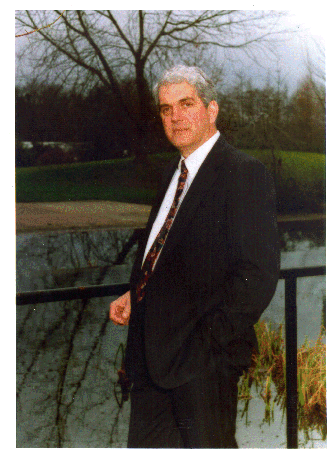View from the Hill: David VandeLinde
An electrical engineer specialising in communications, Professor VandeLinde was cautious about the general impact of Dearing: “It’s early days to talk about the real impact….It encourages HE to take advantage of new technologies, in particular in the delivery of tuition to students…also it is talking about the dissemination of information more broadly. My perception is that this is beginning to take off independently of Dearing, after the work done and funded by the HEFCs in computer assisted teaching through TLTP….We are near the point with the Web, Internet and Intranet where they are going to make a difference in the next decade.”
Even so, the Professor does not see the paper library or personal tuition disappearing: “I think we are a long way away from the virtual university and…I don’t think Dearing is telling us to do that.”
Q: “ What is Dearing’s general message?”
A: “Make sure you take positive, aggressive advantage of these tools where appropriate and do it the more classical way where that is appropriate.”
Dearing’s general vision for the future, with every student owning a laptop, is also addressed soberly: “Maybe what it means is that not everyone will have their own state of the art laptop but they will have their own machine/word processor and their information access terminal if you will… you can’t put 6000 computers in a building on campus for everyone. We will also have to cut the cost of communication for students off campus.”
The changes advocated by Dearing have a potential impact on research as well as teaching. I asked Professor VandeLinde if he felt that using IT in teaching would create any extra time which could be used for research: “It’s always a catch up game. Lecturers can use their teaching time to greater advantage by using computers for what they are good at, so over the next decade we might see IT doing more of the one to one drill type learning leaving the lecturers with more time to work with the students in groups. Much of the learning process is group interaction which is what lecturers are very good at.”
 Professor VandeLinde carries this balanced view over into the impact of IT on distance learning, supporting again the selective application of technology: “If we can use IT where appropriate I think we will see more and more of it for communication between tutors and students, just as the OU does. Will IT have the potential to allow students to learn just as well at home? I think the answer to that is in limited areas yes, but in lots of areas, no. We often forget that the major cost of education is the time students invest in it. The question is what is the best way of delivering remotely?”
Professor VandeLinde carries this balanced view over into the impact of IT on distance learning, supporting again the selective application of technology: “If we can use IT where appropriate I think we will see more and more of it for communication between tutors and students, just as the OU does. Will IT have the potential to allow students to learn just as well at home? I think the answer to that is in limited areas yes, but in lots of areas, no. We often forget that the major cost of education is the time students invest in it. The question is what is the best way of delivering remotely?”
The human element in the learning process is vital, and although he sees IT contributing in a large measure to the process, if it can be efficiently and economically applied, he still attaches a premium to the personal interface: “I am clearly an advocate of using the technology. But getting the student and the lecturer there so they can see each other’s body language is a vital part of the process.”
The competition brought to education by large commercial interests is also contemplated with equanimity: “There are a number of major corporations as well as small independent companies that are trying to do a better job than the classic open university. On the margin, they’ve been successful…what I don’t think they’ll be able to do is replace the entire learning experience…they don’t build a community of scholars which generates new ideas. They are good at disseminating a fixed set of knowledge, but there is more to a university than the given wisdom.”
On the question of costs, David VandeLinde sees little to be gained by regarding IT as a force for economy. Technology is much more to do with quality: “To some degree it’s saving money when we compare what students need to learn today with what they needed to learn 20 years ago, but as far as IT saving money and reducing the cost of education I don’t see that happening. IT will allow us to keep up with that demand for a greater breadth and depth of education.”
The question of quality permeates the professor’s view of the issue. Bath has a number of national services where he sees a potential benefit to the wider community: “…the services that we have serve the community very well and the university is proud of them. In the near future we will look at how we can make the services better and add value to the campus. If we do it well it will bring like minded people to the campus. If we don’t do it well we won’t see them.”
Finally, on the 24 hour opening of the university library, David VandeLinde is equally uncompromising: “Educational experience should be available on demand when the students want to use it, not when we want to provide it. If the students want to work at 2 am, why not?”
Why not indeed?
Author details
Isobel StarkWeb Officer, UKOLN
i.a.stark@ukoln.ac.uk
